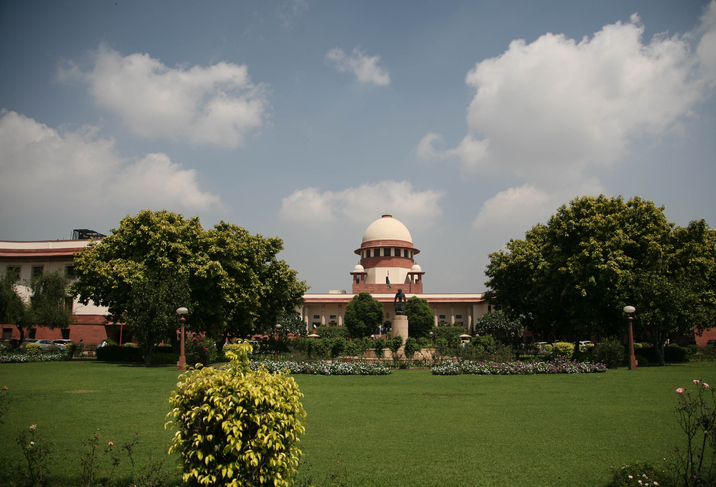
The Price of Four Living Mealworms in Turmeric
Thirty eight years of litigation & the proof of a broken justice system
Almost thirty eight years ago to this day, a food inspector in Haryana picked up a 600 gram sample of turmeric, that staple of Indian cuisine, from a shop owned by Prem Chand in Sonipat and sent it to a lab for analysis, thereby setting in motion a chain of events that culminated in a Supreme Court judgement on 30th July, 2020. There is no specific reason why anyone beyond Prem Chand and a few bureaucrats in Haryana might even know or
care about the case but it tells a story of a justice system broken in every way possible.
The system was set in motion when the analyst’s report indicated the presence of “four living mealworms and two live weevils” in the sample from Prem Chand’s store. Prosecution was begun against Prem Chand under the then Prevention of Food Adulteration Act (PFA), 1954. Thirteen years later, in 1995, Prem Chand was finally acquitted. But his troubles were not over. The Haryana government thought it was a fit case for appeal to the High Court and fourteen years later, the Punjab and Haryana High Court delivered another shock to Prem Singh, convicting him of the offence of adulteration and the sale of turmeric powder without a license – sentencing him to 6.5 months in prison and a fine of Rs. 2,500. Naturally, it was his turn to appeal, this time to the Supreme Court.
It was only in 2020 did Prem Chand’s saga come to a close – in a short and succinct judgement by a three judge bench which set aside the High Court’s judgement and affirmed his acquittal. No intricate point of law was involved. No complicated factual matrix needed to be untangled. All that the SC relied on to acquit Prem Chand was simply the evidence on record – that there is no chain of custody to prove that the sample tested by the analyst was in fact drawn from Prem Chand’s shop or that it was not tampered with en route. In fact, even if it were to be assumed that the sample was from his shop, the analysis did not indicate if the sample was actually adulterated since the meal worms and weevils (hardy creatures that they are) might have found their way into the haldi in any number of ways.
Failure of the criminal justice system
How many ways did the criminal justice system fail in this case? Let’s start right at the beginning:
- Improper chain of custody – when the food inspector collected the sample from Prem Chand’s shop and sent it to the analyst, he did not retain the dispatch receipts or if he did, did not produce them in trial. Nor did the analyst test the products at the earliest or ensure that they were stored in safe custody in a manner that prevented any possible tampering.
- Delayed trial – it took thirteen years to complete a trial for an offence which was punishable with a term of 6 months to three years in jail. It is unlikely that this trial involved calling more than a handful of witnesses and taking on record a few documents – a process that shouldn’t take more than a day or two of hearings at the most. Even if we assume that it took a year or so for the procedures under the PFA
and the Code of Criminal Procedure to be completed, there is absolutely no reason why a simple matter such as this ought to be delayed for so long. - Mindless appeal – having failed at adducing evidence to prove the case against Prem Chand, the Haryana government seems to have decided to take a chance at the High Court. While it is always easy to be wiser in hindsight, one can’t help but wonder about the driving reason behind filing an appeal in a case 13 years after the alleged incident of adulteration.
- Delays at the High Court – having filed the appeal in the High Court, the government and the High Court both seemed to have forgotten about the case for 14 years. No details of the case appear to be available on the Punjab and Haryana HC websites which speaks of the state of computerization of records and the quality of data
available from courts. - Delays at the Supreme Court – it took eleven years for the Supreme Court dispose of this case with a 5 page judgement. The case was listed for hearing 9 times but it went a full 7 years without being actually listed in the Supreme Court. How many such cases are pending in the Supreme Court? No one knows. One hopes that the Registry and the Chief Justice of India do, but in the absence of any concrete data, one can only speculate.
Every authority and every level of the judiciary failed in doing their duty in a timely and lawful manner. Just how did a case that required no more than a few pages of reasoning to dispose of at the Supreme Court languish for over thirty years in the judicial system is a question to reflect on deeply.
Prem Chand, now a 76 year old man, has had this case hanging over his head for half his life. One can only imagine what anxiety and agony he must have suffered and what expenses he must have incurred all because of those “four living worms and two live weevils”.



